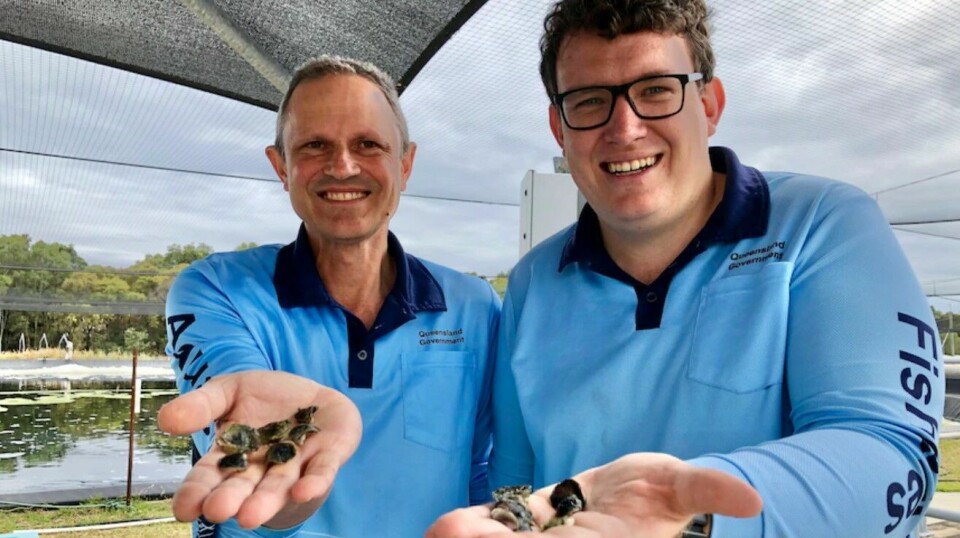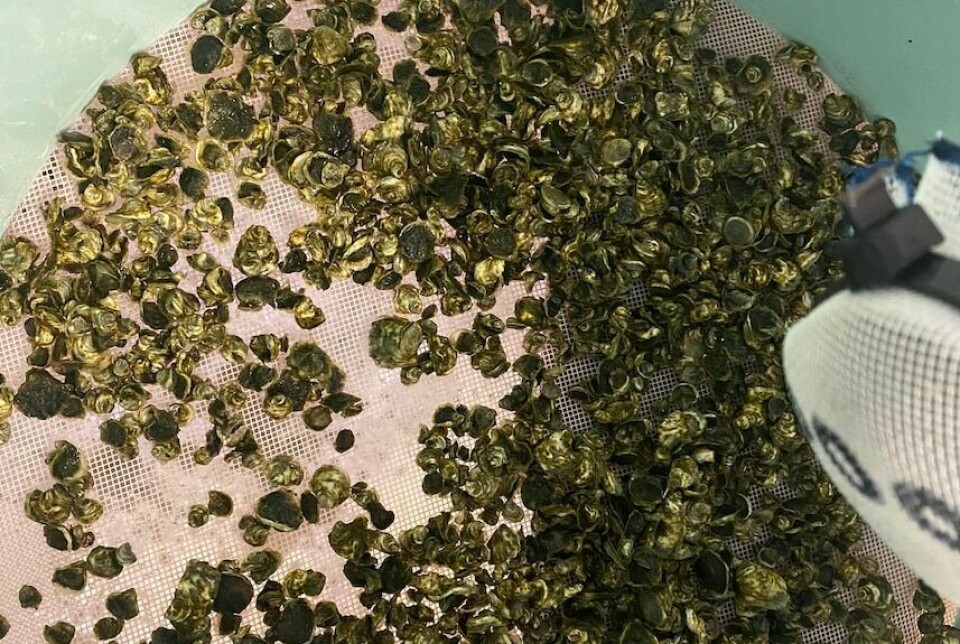
Oyster breeding breakthrough offer hope to Aussie growers
Blacklip may be answer to effects of climate change in Queensland waters
Scientists in Australia have made a breakthrough that they hope will future Queensland’s oyster farming industry against the impacts of climate change, reports ABC News.
They have successfully bred Blacklip rock oysters, a fast-growing, disease-resistant, heat-tolerant species they hope will help the oyster industry not only survive but expand exponentially.
Blacklip rock oysters have been reared in a Northern Territory hatchery, but never this far south, where most of Queensland's farms are currently located.
All but one of Queensland’s oyster farmers produce Sydney rock oysters, which prefer cooler water. Their northern limit is the Town of 1770, restricting oyster farms to just 15% of Queensland’s vast coastline.
Alternative oyster
Sydney rock oysters have been plagued by the parasitic “QX” disease, which wiped out many oyster crops in New South Wales this year.
“We’re trying to find another species that oyster farmers can grow together, so when they have one problem with one oyster, the other one can still get to market,” said Aiden Mellor, a Queensland Fisheries scientist involved in the breeding project at the Bribie Island Research Centre.
Blacklip rock oysters can be farmed much more widely geographically, but a major barrier is that the process of catching their young in the wild and successfully raising them is time-consuming, unreliable, and frustrating.
John Collison runs Australia’s only Blacklip rock oyster farm.

It takes up to eight months of growth to tell whether the spats he has gathered from ocean currents are Blacklip rock oysters or other more plentiful, less productive species. The success rate is just 5% to 10%.
The hatchery trial provided 110,000 baby Blacklip rock oysters to Collison's farm.
More efficient
“The hatchery is much more efficient,” said scientist Max Wingfield, who works with Mellor at Bribie Island.
“We can provide 100% Blacklip oyster spat, with all the advances that modern aquaculture is making with selective breeding and improvement.”
Collinson agreed. “It's unbelievably good,” he told ABC News. “I owe them the world with what they’ve done.
“They [Blacklip] are a fantastic oyster. They’re really hardy, they handle a lot of temperature range, they cop a flogging, and they just go go go — and they taste really good.”
Much more work will be needed, howver, before the industry can be expanded.
The full extent of their range is unknown because most of Australia’s ancient shellfish reefs have been destroyed.
“The regulators need to be confident that the Blacklip wouldn’t pose any sort of an environmental problem if they were farmed in south-east Queensland,” said Wingfield.






















































